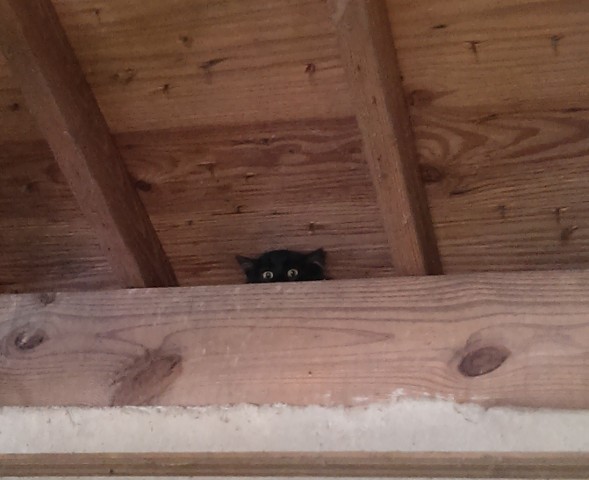The genius of naiveté
Many people believe that knowledge is superior to naiveté.  They believe that experience is superior to innocence.  But I say this is not so.  Experience and innocence are both the foundations of wisdom.  However, in the final analysis, it is actually naiveté that is the hardest aspect to master.
Innocence is to experience as not knowing is to knowing.  Remember that Socrates said that he knows that he does not know.  The unknown is the final frontier, as is naiveté.
All our life we are surrounded by knowledge.  We structure our day to day routine around knowledge and what we know.  All of school is about learning knowledge.  From an early age we are taught that knowing=good, not knowing=bad.  Everywhere we turn – knowledge made it possible.
The unknown is drowned out and forgotten.  In a utilitarian sense, this is only natural.  What purpose does the unknown serve in your commute to work?  It is precisely because of this, that the unknown and naiveté is so hard to pin down.
Water is to fish as knowledge is to man. Â Yet, beyond the water, something inconceivable to the fish has always existed. Â It is only on that one fateful day that the fish finds out exactly what.
Perhaps the best illustration of the unknown would be the 9/11 terrorist attacks.  Who could conceive of such a thing?  It defines the concept of an “unknown unknown.† When the planes crashed into the towers it was like the unknown crashing into reality.  Innocence inconvertibly turned into experience.
If we were to conceive of innocence and experience as commodities, we might say that in terms of potential, experience is always there to be had, whereas innocence is finite. Â When you give away innocence you can never get it back. Â Experience, on the other hand, will always be there. Â Innocence can turn into experience, but experience can never turn back into innocence. Â So really, it is innocence that is the more valuable commodity.
Problem is, innocence is not profitable.  The masters of propaganda, the advertisers, the hype-men – they can’t make a profit on your innocence.  Innocence and naiveté revolves around doing by not-doing, knowing by not-knowing, and working by not-working.  The hype-men need you to do something if they’re going to make some cash.  Think of the children, the animals, the environment – won’t somebody do something!?
People think that going out and doing stuff is how you get experience.  But I know my Tao.  The Tao is the Tao wherever you go.  North, west, east, south, the Tao is still the same Tao.  The Tao is right there in your backyard.  You don’t need to go anywhere to know the Tao.  Why go there, when you can make there come here?
Without going abroad
I have knowledge of the world
Without gazing at the stars
I perceive heaven’s Tao
The more one wanders
The less he knows
The wise man explores without travelling
Discerns without seeing
Finishes without striving
And arrives at his destination
Without leaving home.
The funny thing about travel is that cheap, worldwide travel has never been possible until roughly 50 years ago. Â For thousands of years only the intrepid and wealthy could travel freely. Â So much travel and experience is clearly the anomaly if you take a broad picture view of the history of man. Â What is doubly funny is that not only do the hype-men hype travel; they also hype how you never need to leave your home. Â The internet and mass communications now bring the farthest corners of the earth right into your lap! Â So which is it? Â Do I go absolutely anywhere or do I not go anywhere at all? Â Perhaps the world-traveler has more in common with the basement-dweller than we might think.
Regardless, you do not exactly gain naiveté in the way that you gain knowledge.  It is just like the unknown – you cannot touch the unknown, you cannot see the unknown.  I believe that because naiveté is harder to master, rather than grapple with its vitality, we subtly try to explain it away as being inferior.  We claim it is childish so we don’t have to deal with it.  We can now rationalize why we have so little of it.  The vitality and superiority of naiveté and innocence is its rarity, not its utilitarian value.
Funny story time:  yesterday on Mother’s Day, we were sitting around talking about this and that.  My grandma was there and we got to telling stories about the funny things that kids say.  My dad told a story about he and my mom were picking strawberries.  A little girl came over to help my mom.  Eventually she went back over to her own mom.  The girl told her mother she was helping “that old lady†pick strawberries.  We all had a good laugh about the old lady.  But I said what’s really funny is that here we are laughing, and all the kid did was tell the truth!  Joke’s on us.










